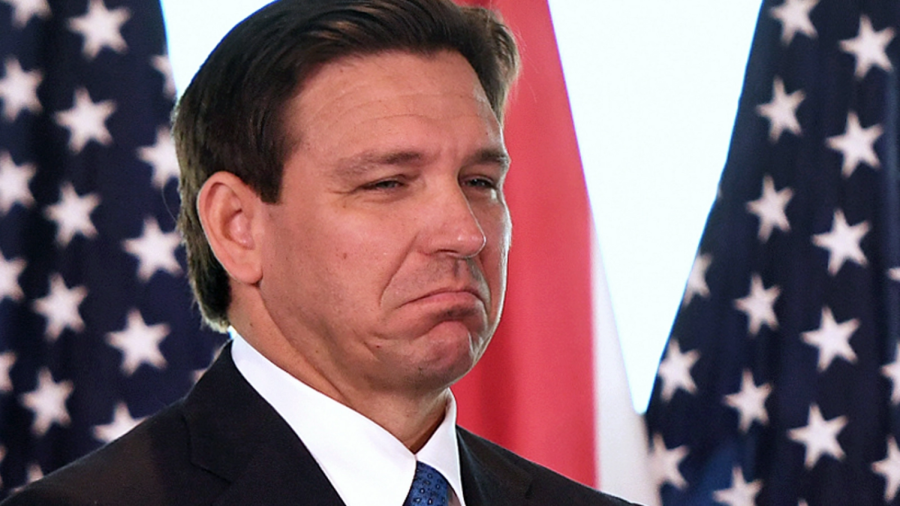DeSantis’ War Against Higher Education Will Not Stop in Florida
Last month, Republican governor of Florida Ron DeSantis launched a mission to strip Florida’s higher education system of what his Director of Communications, Taryn Fenske, called a “political ideology that puts trendy, truth-relative concepts above learning.” DeSantis wants to model New College of Floridaafter Hillsdale College, a conservative Christian college in Michigan.
On Jan. 6, DeSantis appointed six new members to the Board of Trustees at New College . Among the appointees are Christopher Rufo, a senior fellow at the Manhattan Institute — a New York-based conservative think tank — and Charles Kesler, Dengler-Dykema distinguished professor of Government at Claremont McKenna College and a senior fellow at the conservative-leaning Claremont Institute. The new trustees then ousted New College President Patricia Okker and moved to replace her with former Florida Education Commissioner Richard Corcoran, an ally of DeSantis and a former speaker of the Florida House of Representatives. Corcoran is set to be confirmed by the board as interim president next week.
For Oberlin Visiting Assistant Professor of Politics Rudabeh Shahid, a former visiting assistant professor and postdoctoral fellow at New College, the change represents a destruction of a safe haven for progressive students in an otherwise conservative state.
“It was like a sanctuary for a lot of people who could not really fit into other schools in the Florida system,” Shahid said. “They signed up for a place where they would be accepted — a lot of trans people, for example, [attend] the school — but because [of] what happened, they’re very worried.”
Beyond the marked loss of a liberal oasis where Florida students could feel comfortable with their identities, the changes will also hinder the quality of academics that has earned New College its reputation as a top public liberal arts college. Shahid, whose focus is on South Asia, noted that Hillsdale College’s Politics department offers almost exclusively western-centric courses.
“Since I’m a South Asia scholar, … I would [probably] never be able to teach a course there. Then, of course, [my class] Citizenship and Statelessness, where we talk about various debates surrounding how certain groups have been treated in the U.S., how their citizenship actually was determined … [it] would be very hard to teach citizenship at New College.”
At the K–12 level, DeSantis has attacked “critical race theory,” a position that will almost certainly leech into his plans for New College.
“The whole idea is to attack … critical race theory, and when you do that you can’t understand the structures of various societies, especially the U.S., given our whole history as a settler colonial nation,” Shahid said.
DeSantis has also floated reforming tenure, hoping to subject tenured faculty to review at any time after the state legislature approved a measure to conduct a “comprehensive review” of tenured faculty every five years. Not only is this antithetical to the spirit of tenure, but it also jeopardizes faculty security and, by extension, their ability to teach students in a way that they, the experts, feel is best. For the party that claims to support “free speech” and “academic freedom,” this sure feels a heck of a lot like unnecessary censorship.
It may be tempting to assume that this is an isolated incident, but DeSantis has already started going after Florida State University. Beyond that, his successful overhaul of New College has shown what’s possible and will likely embolden similarly ambitious state governments to do the same.
“The fight over the future of New College is about more than just the fate of this small school in Sarasota,” prominent New York Times columnist Michelle Goldberg wrote in a Jan. 9 article. “For DeSantis, it’s part of a broader quest to crush any hint of progressivism in public education, a quest he’d likely take national if he ever became president.”
With the notion of this agenda expanding to a national scale comes another terrifying possibility: private colleges and universities, while independent, usually receive money from the federal government.
“Private institutions shouldn’t think they’re immune, [if they’re] high-ranked like Oberlin,” Shahid said “…If things happen federally, a lot of the loans [and] grants can be cut for students.”
There are already guidelines that institutions are required to meet in order to receive federal funding, and while I would like to think it is highly unlikely, it is not inconceivable that additional rules could be added that align with the Republican educational policy platform. DeSantis’ new mission represents a threat not only to public colleges in his state but to the collective ethos of higher education nationwide.





